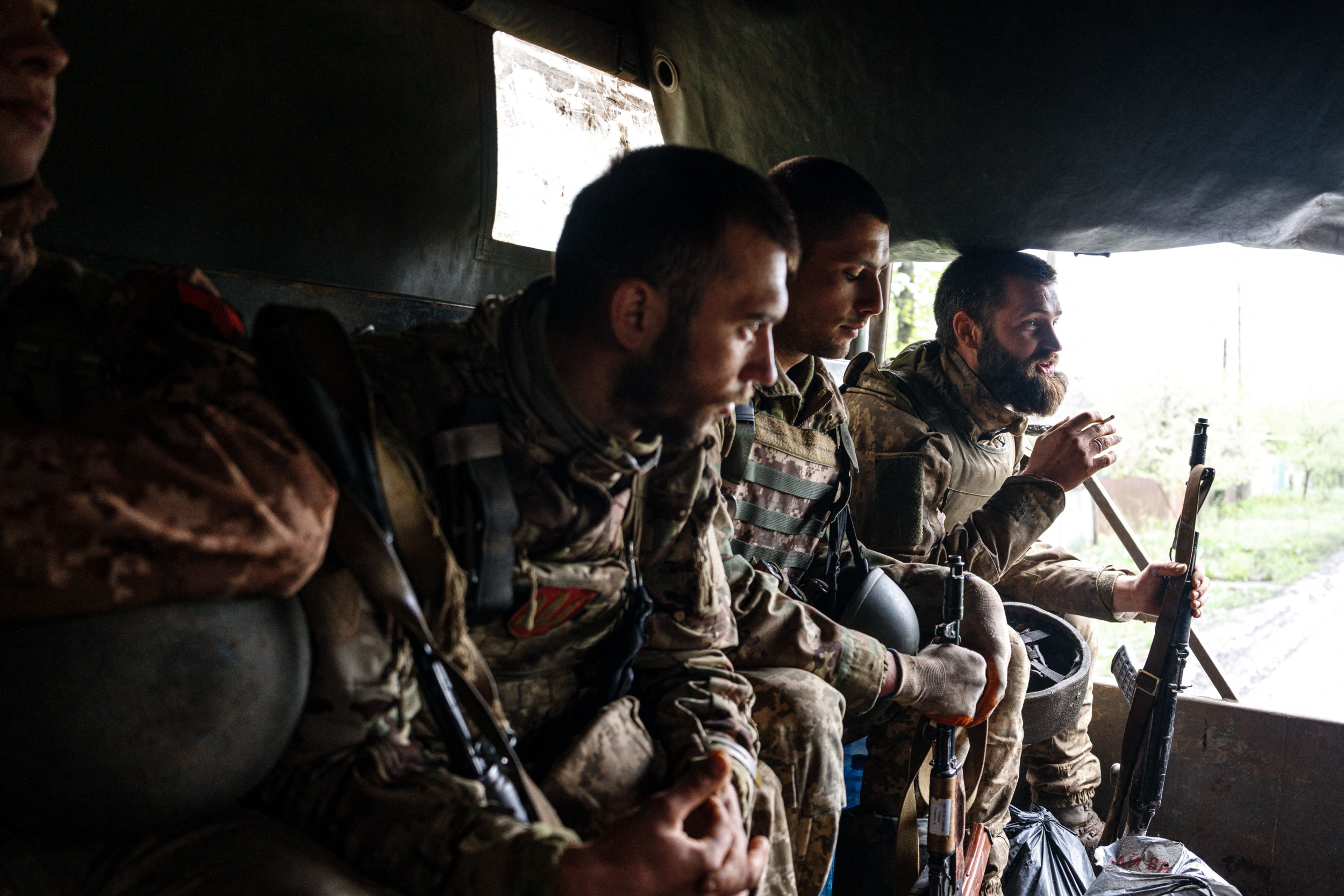How Russia Could 'Deliberately Engineer' a Nuclear Disaster in Ukraine
Russia could choose to target southern Ukraine's Zaporizhzhia Nuclear Power Plant in several ways, experts have said, as concerns once again spike around the contested nuclear facility.
Russia "may seek to deliberately engineer a radiological accident" at the facility, which would make the power plant's emergency systems redundant, Darya Dolzikova, a research fellow at the Royal United Services Institute (RUSI) think tank in London, U.K, told Newsweek.
Should Russia choose "to sabotage the facility," Jack Watling, senior research fellow for land warfare, added to Newsweek, Moscow could do "damage the critical support infrastructure" and lay the blame at Kyiv's door.
Moscow could also set charges in different locations in and around the site, "blaming the detonation on Ukrainian strikes," Watling added. The comments coincided with a new RUSI report, penned by Dolzikova and Watling, which additionally warned that Russia could "also resort to deliberate attacks on nuclear facilities to coerce Ukraine's partners through fear of escalation without resorting to nuclear weapons." However, the report stressed the vast difference between a power plant accident and a targeted nuclear strike.
Newsweek has reached out to the Russian defense ministry for comment via email.
The Zaporizhzhia Nuclear Power Plant was seized by Russian forces in the early days of war, although Ukrainian personnel have continued to staff the facility. It is located in the Zaporizhzia region of southern Ukraine, which the Kremlin said it annexed in September 2022. However, this claim is not recognized by the international community.
Since February 2022, alarm bells have been ringing over the safety of the largest nuclear power plant of its kind in Europe. On March 4, 2022, it became the first operating civil nuclear power plant to experience an armed attack, with a fire breaking out at the facility.
"If there will be an explosion, it will be the end to all of us: the end of Europe, the evacuation of Europe," Ukrainian President Volodymyr Zelensky said at the time.

On Tuesday, Ukraine's state nuclear energy organization, Energoatom, said Russian-installed personnel in the nuclear power plant were "looking for ways to evacuate," with Ukraine's fighters "already close."
On April 28, the director of the International Atomic Energy Association (IAEA), Rafael Mariano Grossi, said the organization's experts at the facility were "again forced to shelter" after warnings of missile attacks and the "sound of continued shelling in the distance."
"One landmine exploded near the site," Grossi said in a statement. The IAEA has been present at the Zaporizhzhia facility to assess the safety of the plant, which falls close to the front lines of conflict in southern Ukraine.
The previous day, the British defense ministry said that Russian forces had placed "sandbag fighting positions" on the roofs of a number of the reactor buildings at the power plant.
This was the "first indication" of the reactor buildings being incorporated into tactical military planning, the ministry said on Twitter. It "highly likely increases the chances of damage" to the facility's safety systems in fighting around the plant, the government department added.
"The preparation of firing positions on an NPP suggests an intent to conduct a deliberate defense of the structure," Watling said. "This is to turn the site into a military objective and therefore to increase the likelihood of it coming under fire."
These fighting positions highlight "the acute threat posed to the power plant—and, by extension, its civilian staff—by the ongoing military activity," Dolzikova added.
Experts say that direct damage to a reactor, sparking a catastrophic accident at the facility, is unlikely.
On Friday, the RUSI report argued that the biggest threat to Ukraine's nuclear power facilities was likely to be key systems failing or human error.
This could potentially result in a scenario more like the Fukushima nuclear accident in 2011 following an earthquake and tsunami in Japan, the report said, rather than a replay of the Chernobyl nuclear disaster of 1986.
However, unlike Fukushima, the Zaporizhzhia plant's reactors have not been operational for months, Dolzikova added. "So even the failure of key support systems would not immediately lead to a major accident—should efforts be engaged to mitigate such an accident," she said.
Moscow and Kyiv have repeatedly accused each other of targeting the nuclear power plant and of "nuclear terrorism." Shelling has caused the plant to lose access to external power on several occasions before being re-established.








